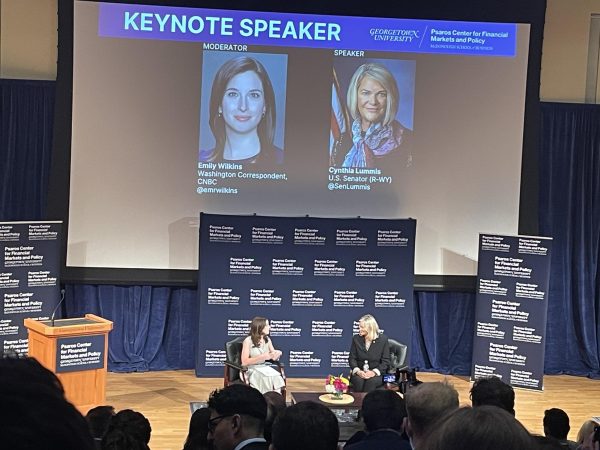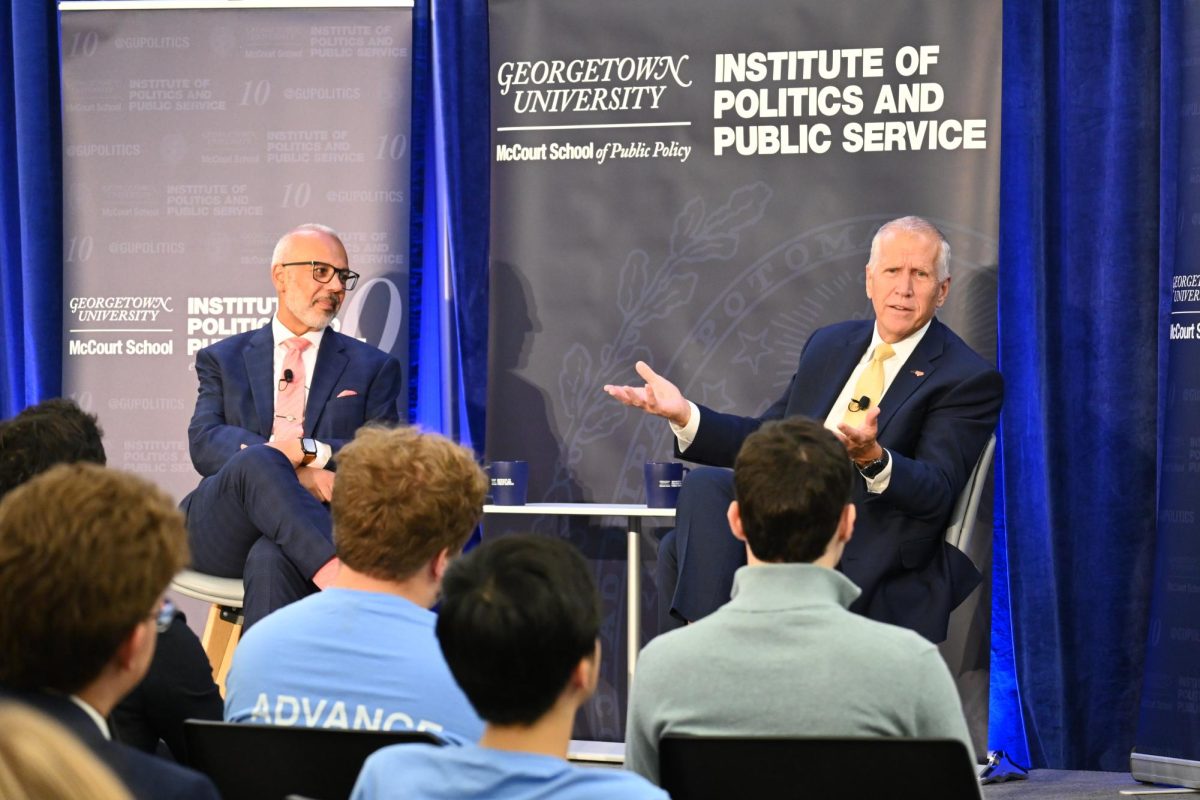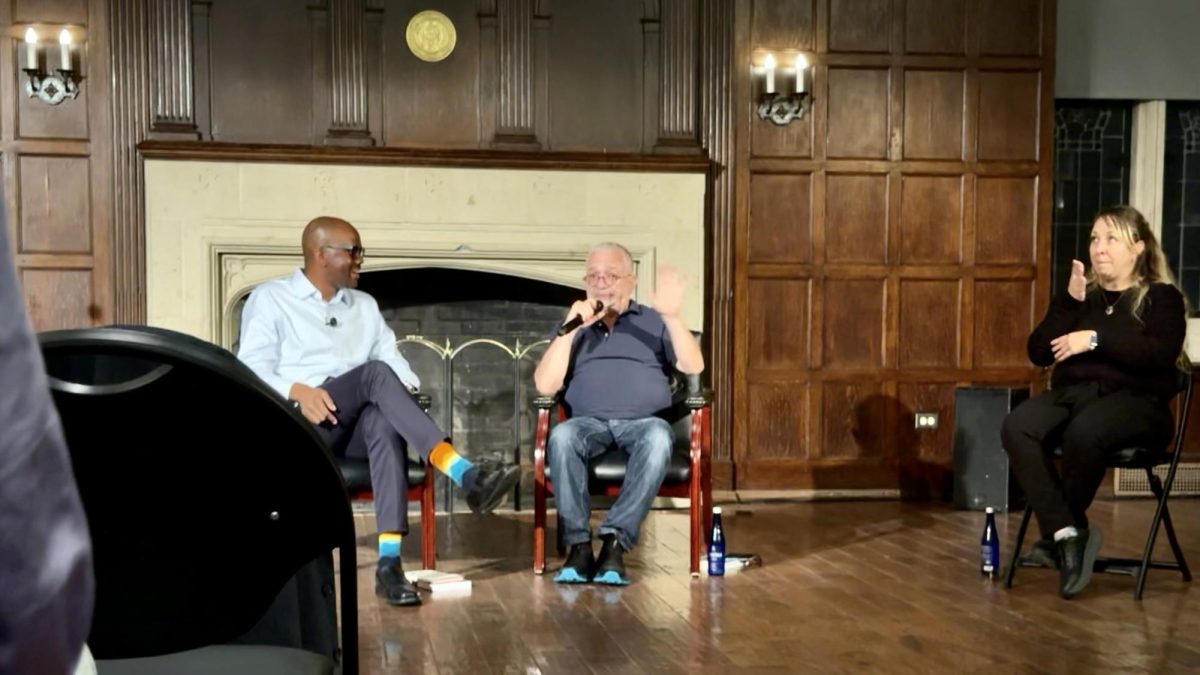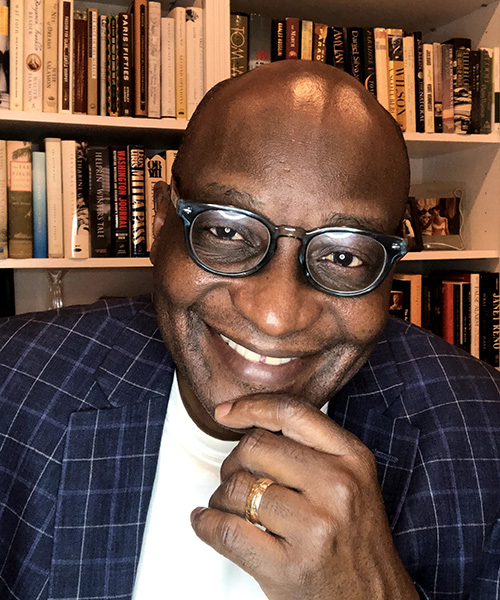Legislators and bank leaders speculated on the future of cryptocurrency and the impact of current events on financial markets at the Financial Markets Quality Conference, held by the Psaros Center for Financial Markets and Policy, Sept. 17.
Representative Patrick McHenry (R-N.C.) and Senator Cynthia Lummis (R-Wyo.) spoke about the regulation of cryptocurrency and current legislation to establish joint oversight over cryptocurrency. In the past, both the Securities and Exchange Commission (SEC), which prevents the manipulation of markets, and the Commodity Futures Trading Commission (CFTC), which regulates raw materials that can be traded, have struggled over jurisdiction.
Other speakers included Rostin Behnam, the chair of CFTC; Jamie Dimon, CEO of JPMorganChase, a banking and investment conglomerate, and Nellie Liang, Under Secretary for Domestic Finance at the Department of the Treasury.
McHenry said cryptocurrency regulation is needed because the SEC and CFTC are both claiming jurisdiction to regulate digital financial products.
“We have a breakpoint,” McHenry said at the event. “We have a problem here because we have the CFTC saying, ‘Well, we see digital commodities, it should be with us,’ and then you have the Securities Exchange Commission saying, ‘Well, what we see is securities.”
“I think frankly that is part of being at the Securities Exchange Commission, is you see everything within your world and your desire to regulate it, even if you don’t have the capacity to regulate,” McHenry added.
Lummis also pushed for greater clarity in cryptocurrency regulation to help foster the industry, saying current SEC regulation is harming the industry’s potential.
“The SEC is suing a lot of digital asset companies, using enforcement actions of rules and regulations that are not clearly defined or explained to the industry and it’s running up legal fees for that industry when they could easily just go over to Europe and set up shop,” Lummis said at the event. “The United States puts itself at a strategic disadvantage with regard to financial services related to digital assets.”

“If we don’t put a clear regulatory framework in statute, by deferring to the SEC on this, we have really stubbed our toes,” Lummis added. “The SEC’s approach is just truly unclear and the industry is perplexed about how to navigate a very unclear regulatory framework.”
Dimon, who spoke during the second half of the conference, said current events, including the war in Ukraine, the Israel-Hamas war and the fragile relationship between the United States and China, have major effects that can affect the financial world.
“This may affect the free and democratic world for the next 100 years, and I think that’s the most important thing,” Dimon said at the event. “If it really goes south, obviously it’ll affect markets like you’ve never seen.”
“It is a major risk that we should be prepared for. Hope it doesn’t happen, but you got to think through, what if it does?” Dimon added.
Discussing which countries will lead the economy in the future, Dimon said the United States remains the strongest because of its free market and democratic strength.
“China has some good things going for it, but it’s a very difficult part of the world, there’s not enough food, water and energy,” Dimon said. “I think their lack of freedom will hurt their innovation, their growth. They’ll obviously be one of the big successful nations and we should obviously try to have a great relationship with them. But the most successful? America.”
“If you open our borders to everybody in the world, billions of people will come here. The beacon of light that this country was for my Greek immigrant grandparents, it’s still that beacon of light,” Dimon added.
When asked about advice he would give students as they look to the future, Dimon said lifelong learning is crucial.
“Learn, learn, learn, learn, learn, learn, learn,” Dimon said. “If you’re a Democrat, read the Republican opinion — you know the good ones, there are a lot of very smart ones there — if you’re a Republican, read the Democrat ones.”
“You only learn by reading and talking to other people, there’s no other way,” Dimon added.



















